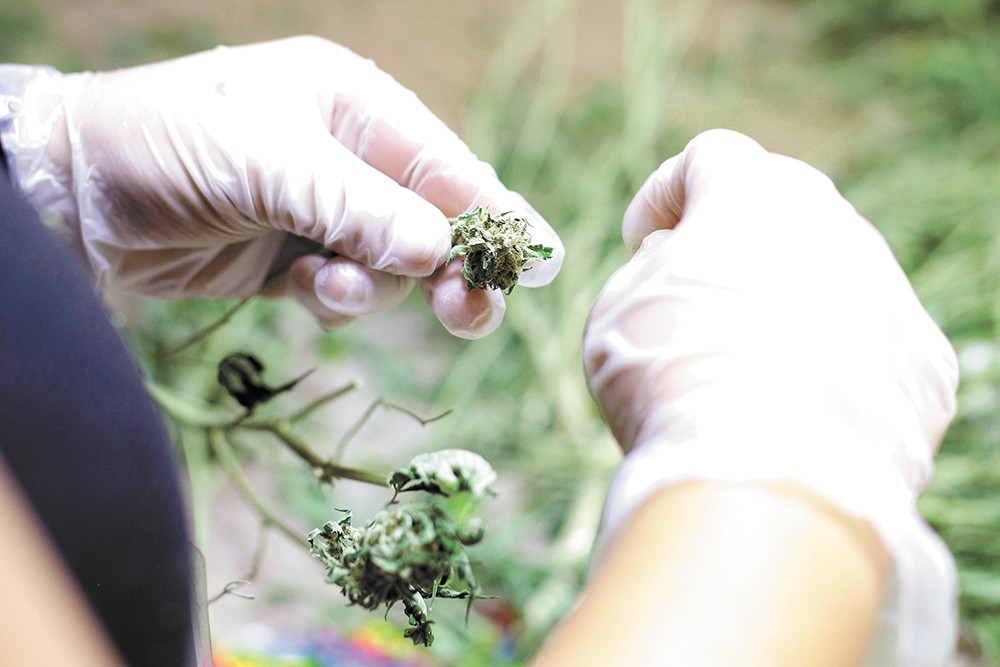Legalizing cannabis means less crime, right? It depends — on where you are and how long it's been legal.
Here in Washington, where marijuana has been sold legally for over five years, the black market has taken a back seat. In states that are more recent arrivals to the legal weed party, however, that's not yet the case.
Last week at a border crossing in California — where legal retail sales began just last year — Customs and Border Protection agents seized a shipment containing over 7,000 pounds of marijuana. The story made the rounds nationally because the smugglers had attempted to conceal the marijuana by surrounding the packages with jalapeno peppers.
Two days prior, at the same port of entry, an even larger bust took place. Nearly 10,000 pounds, just not packed in peppers.
The second bust was announced publicly the same day that the Associated Press ran a story, completely unrelated to the seizures, on California's still-booming black market. The article cites an industry report stating that the black market earns $3 for every $1 spent in the legal market.
So, is California's lagging legal market just a symptom of the relatively recent adoption of retail sales? Yes and no.
You may remember the early days of legal weed here in Washington, where single grams of flower sold for $20 or more — roughly double the black market price. Times have changed, and single grams now sell in the single digits.
A study released in June by the University of Puget Sound and University of Washington, which looked at THC metabolite concentrations in wastewater from 2013 through 2016, noted an average increase in metabolite concentration of 9 percent per quarter over the duration of the study. During that period, legal sales in the area of the study increased by nearly 70 percent per quarter.
The study concluded that the correlation between concentration of pot by-product in our pee and the increase in legal sales signaled a rapid shift away from the black market.
In California, however, things aren't expected to move as quickly. The AP story notes that in 2024, estimates are for $6.4 billion in spending on the state's black market compared to $7.2 billion in the legal market. A full decade after Washington began regulating away its black market, California is expected to remain nearly neck-and-neck with its legal one. Which shows that time isn't the only factor in building a successful legal market. Smart regulation is as well. ♦






















